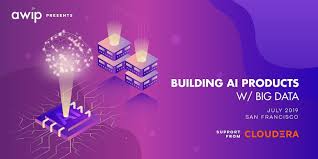Source: hackernoon.com
Artificial Intelligence and Machine Learning are changing how people use technology to lead their lives. The phenomenon is pervasive not just in consumer tech but also in large B2B enterprises. To reap the benefits from this emerging trend, Product Managers need to learn new ways of thinking and be aware of the challenges of leveraging AI models.
On July 11th, Advancing Women in Product team hosted a panel of experts from product, engineering and venture capital backgrounds at the Amazon office in East Palo Alto, CA for a discussion centered around challenges with Big Data, embracing change to build AI solutions at scale and humanizing AI.
Data – the new “crude” oil
Any new technology rides the wave of other technology developments. Example, Gmail rode that wave when storage became really inexpensive to offer effectively “unlimited“ storage to its email users. In the case of Artificial Intelligence the tipping point came when it became possible to collect and process vast quantities of data at a very fast pace and in a cost-effective manner.
Almost all of us have heard that data is the new oil. However, our panelist Kalyan likens data to being the new crude oil. Talk to any data scientist and they will tell you that a vast majority of their time goes in collecting, cleaning and preparing data before they can actually start doing anything with it. The accuracy of a model is heavily dependent on the data that it is fed. As such, it is critical that product managers collect the right data both in terms of quality and quantity. Increased concerns over data security and privacy issues only add to this challenge.
Product managers must tread carefully when deciding what data to collect and how much data to collect so as to stay compliant with the data and privacy guidelines of the industry or geography they operate in.
Embracing Change
Businesses everywhere want to maximize the opportunity that Artificial Intelligence, Machine Learning and Big Data represent. While building AI and ML solutions at scale poses significant challenges for large and small enterprises alike, these challenges can be overcome by keeping an open mind and being open to change.
Based on her experience making AI at scale a reality for customers spanning industries such as autonomous driving, pharma, banking, and government at Cloudera, Vidya recommends focusing on three key pillars – people, processes and infrastructure. She highly encourages leaders and product managers to promote people to work cross functionally and break down functional silos.
Building AI products presents unique sets of challenges, from developing the Machine Learning algorithm, to delivering it in a production environment, to maintaining and running it. You need people who understand the entire life cycle and are willing to own the process end to end.
She also urges product managers to revisit existing engineering processes as these processes might be outdated and not applicable. For instance, building an AI model is a highly iterative process and expecting an outcome in a two-week sprint can be an unrealistic goal for teams to achieve.
Lastly, she asks leaders to make the necessary investments in infrastructure resources needed for building and running machine learning algorithms. Many of the AI/ML tools used today are built in-house and are based on rapidly evolving open source applications. These tools might be inadequately integrated which can lead to leakages and security vulnerabilities. Investing in resilient infrastructure and right tools is imperative to making AI solution secure and efficient.
By focusing on these three areas product leaders can help businesses overcome the hurdles in building and scaling AI solutions.
The Human Element
There’s a lot more to AI than Big Data and machine learning algorithms. Cognitive, human, and emotional intelligence are still very relevant and equally important skills.
Vidya says “the most successful person on her team was not just a great data scientist but a great communicator as well”.
According to Kalyan you don’t just need great engineers and data scientists when building a model. You need subject matter experts as well who can help interpret the data or identify relevant information. “You need the help of experts, it’s inevitable.”
Vibin takes this a step further and emphasizes the importance of having diverse teams. “Purely from a business perspective it doesn’t make sense to build a product that is geared towards one segment of the population only, especially in the case of a broad consumer facing product such as Alexa”.
You need to have decision makers from diverse backgrounds to ensure that the model is not biased, and while you might not be able to eliminate the bias completely, but you can certainly try to reduce it.
A lot of AI products fail because customers are skeptical about the solution being biased. There are further fears that such solutions might replace humans and displace jobs. Having an anthropological mindset and really empathizing with the customer goes a long way in such scenarios. It is really important to keep the human element in mind when you are thinking of building an AI product.
